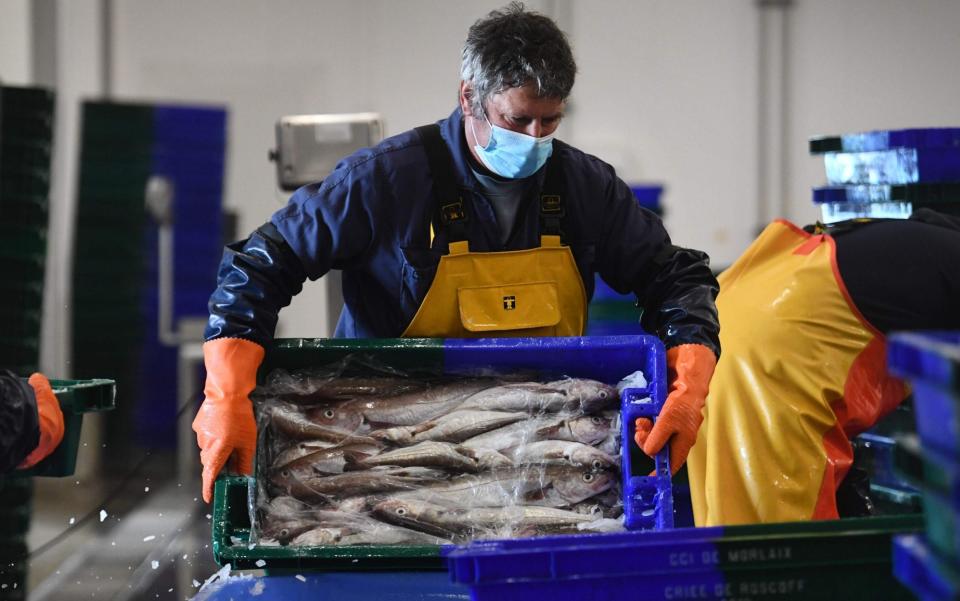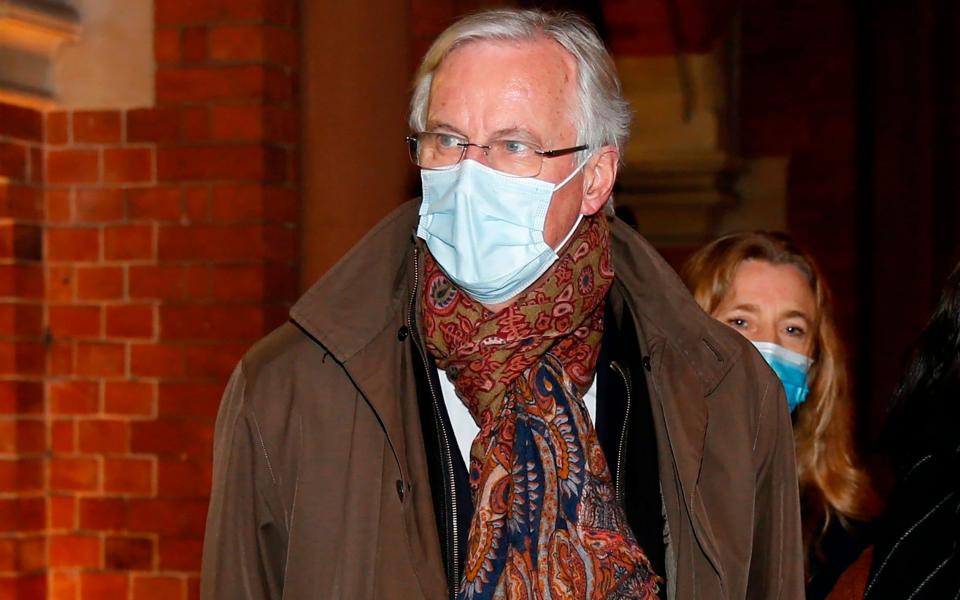Brexit fishing breakthrough close, with EU set to recognise British sovereignty over UK waters

A Brexit breakthrough on fishing could be close, with the EU set to formally recognise British sovereignty over UK waters, The Telegraph can reveal.
Brussels has also accepted a British proposal for a transition period on fishing rights after January 1, but there is no agreement on how long it should last or how it should work.
A fishing transition period would give Britain time to build up its fleet to catch its increased quota and EU fishermen more time to adapt to a smaller share of the fish in UK waters.
Senior Government figures believe that tentative compromise is a prelude for the EU to cave to other British demands on fishing in the coming week of intensified negotiations in London.
France, whose fishermen stand to lose most, heaped pressure on Michel Barnier, the Eu's chief negotiator, to stand firm. Clement Beaune, the French Europe Minister, said there would be no trade deal "without respecting European fishing interests".
Mr Barnier warned that there were "significant" differences between the two sides on fishing, the "level playing field" guarantees and the deal's enforcement. He arrived in London on Friday, a week after a member of his team tested positive for coronavirus.

David Frost, Mr Barnier's UK counterpart, said a trade deal was "late" but "still possible" before the resumption of face-to-face talks in the capital on Saturday. He warned that the final agreement must "fully respect UK sovereignty", which had "practical consequences" including "controlling our fishing waters".
"An agreement on any other basis is not possible," he said, hinting that he had been under pressure to break off talks.
He said he would do all he could to avoid a no trade deal exit at the end of the year, which the Office for Budget Responsibility (OBR) has warned will cut two per cent off the British economy. "A deal is still possible, and I will continue to talk until it's clear that it isn't," he said.
Mr Barnier told EU ambassadors in Brussels on Friday that he could not guarantee a trade deal would be struck before the end of year deadline. Member states called on the European Commission to publish its no deal emergency plans amid fears this round of talks could be the last to strike an agreement.
The EU is resisting a UK push for annual negotiations on fishing opportunities, insisting on the need for stability and predictability for its fishing industry. But it accepts that the number of fish caught in UK waters will decrease and the British share will increase after January 1.
"The transition period is the most likely idea to be part of the final mix as we go into the endgame," a source close to the negotiations said. "We are working off the same grid, but there is no agreement on what should be in the grid and we could still end up ditching the grid."
Lord Frost offered Brussels a transition period of up to three years in September, but the EU is understood to want a much longer timeframe. The EU demand was estimated by some sources to be at least 10 years, although they warned that the situation in ongoing negotiations was still extremely fluid.
There is no agreement over whether officials should agree now what happens after the end of the transition period or negotiate that during the period itself. There is also no agreement on what the transitional measures should be and if they should build towards an end state or be standalone.
Britain has suggested negotiating the future arrangements during the transition period, but the EU has said any fresh negotiations would also have to apply to the trade deal.
Brussels has insisted throughout that the fishing agreement is tied to the trade deal, which further complicates a final agreement. The UK wants the two agreements to be kept separate to prevent cross-sector retaliation in the case of disputes.
After Mr Barnier spoke to EU fishing ministers on Friday, it was reported that he would offer the UK an 18 per cent increase in fishing quota. A British source dismissed the offer, which had already been rejected once before, as "derisory".
EU sources claimed the UK was demanding an 80 per cent increase in quota for British fishermen, but UK sources said that "misrepresented" the British position.
Brexit: what happens next? Sign up to the Telegraph’s Q&A to chat to our experts

 Yahoo News
Yahoo News 